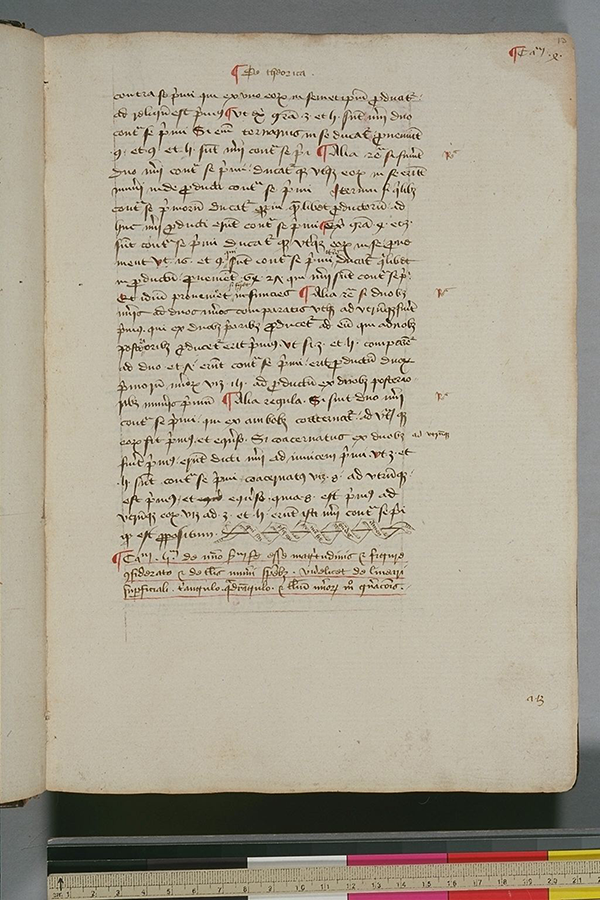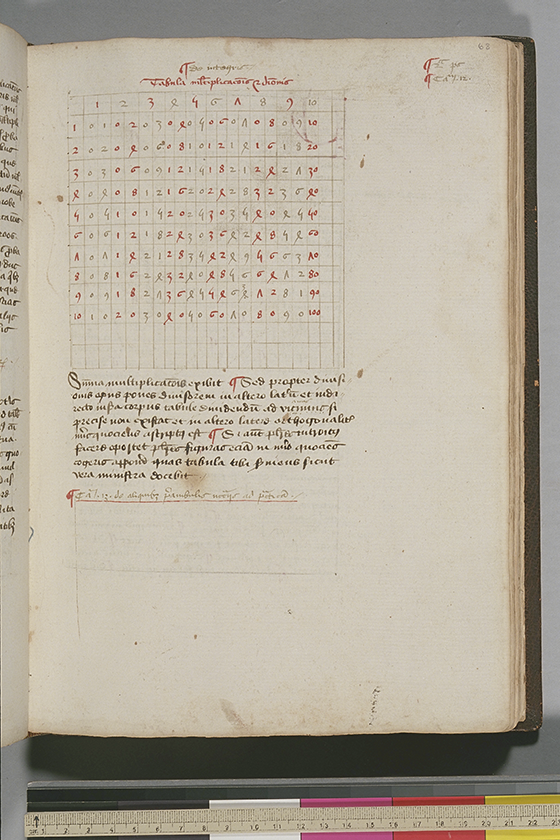- About MAA
- Membership
- MAA Publications
- Periodicals
- Blogs
- MAA Book Series
- MAA Press (an imprint of the AMS)
- MAA Notes
- MAA Reviews
- Mathematical Communication
- Information for Libraries
- Author Resources
- Advertise with MAA
- Meetings
- Competitions
- Programs
- Communities
- MAA Sections
- SIGMAA
- MAA Connect
- Students
- MAA Awards
- Awards Booklets
- Writing Awards
- Teaching Awards
- Service Awards
- Research Awards
- Lecture Awards
- Putnam Competition Individual and Team Winners
- D. E. Shaw Group AMC 8 Awards & Certificates
- Maryam Mirzakhani AMC 10 A Awards & Certificates
- Two Sigma AMC 10 B Awards & Certificates
- Jane Street AMC 12 A Awards & Certificates
- Akamai AMC 12 B Awards & Certificates
- High School Teachers
- News
You are here
Mathematical Treasure: 15th-Century Compendium of Arithmetic
Little is known about the scribe Rolandus Ulysbonensis (fl. 15th century) except that he was born in Lisbon and served as a canon at Sainte-Chapelle, Paris, in 1425. He compiled the manuscript Compendium artis arismetice (c. 1424) at the command of John of Lancaster, Duke of Bedford and son of Henry IV of England. The dedication indicates John’s interest in France. The manuscript (Plimpton MS 173) is based on the existing mathematical sources of the time and provides insights into the mathematics curriculum of French universities. Folio 13 provides an example of the writing style of the manuscript:

Folio 43 (verso) contains a geometric progression in its left margin:

Folio 68 contains a table of basic multiplication facts:

The images above have been obtained through the kind cooperation of the Rare Book and Manuscript Library of the Columbia University Libraries. These and more images may be accessed via Digital Scriptorium, a digital collection of medieval and early Renaissance manuscripts made available by a consortium of cooperating university libraries headed by the University of California, Berkeley.
Frank J. Swetz (The Pennsylvania State University), "Mathematical Treasure: 15th-Century Compendium of Arithmetic," Convergence (June 2018)




